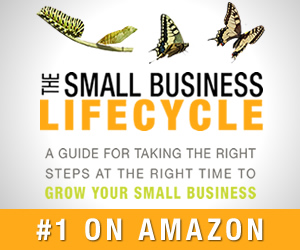While driving through a quiet suburb of Minneapolis a few years back, I saw a funky little independent coffee house called Joe’s Coffee Shack on the street corner of an intersection. Directly across the street, on the opposite corner, was a Starbucks. Of course, this is a common sight in large, urban areas where there’s a coffee shop on every block, but this was a small retail pocket in a sleepy backstreet neighborhood.
I remember thinking how upset Joe must have been when the Big Green Behemoth moved in on his turf. Then I realized that there are “Starbucks people” and there are “shop-local, anti-corporate, support-the-little-guy people.” Besides, with so many coffee drinkers, I’m pretty certain both stores had their fare share of business.
Competition is often thought of as a bad thing, but it is actually a good thing. When other businesses are offering products and services that are similar to yours, it indicates that there is a large enough market to support your business concept. If nobody else is offering what you’re offering, you are either a supreme innovator who’s way ahead of the curve, or an unfortunate dreamer who might realize the hard way that there is no demand for your supply.
However, competition is only beneficial if it motivates you to differentiate your offering in a way that sets you apart from the pack. If you allow competitors to crop up around your business and you fail to define and articulate your company’s unique value, your brand will be reduced to a commodity. When shopping for commodities, people base their purchasing decisions on price, location and convenience, which are all terrible areas in which to compete.
Remember, perception is reality. Your objective is to create the perception that there is no other product or service on the market quite like yours. In order to maintain your competitive edge, you must regularly study your competition in an effort to answer the following questions: What are they doing right? Wrong? What is selling best? What price range is working? Is your customer base exactly the same, or is there even more of a niche that you can hone in on? What are they not doing that you could be taking advantage of?
The better you know your competition, the better you can identify the one thing that makes you truly different. When you know what it is that sets you apart from the rest, it will be more obvious to your customers as well. Make it easy on them; don’t make them guess. Be clear on why they should be doing business with YOU and not someone else and craft your marketing message to speak to your point of difference.
A fitness center in my area hired me to help clarify their brand. Not only did I ask the management the questions below, but we also created a questionnaire to hand out at all four of their facilities. The members were happy to offer their feedback, and it was extremely helpful to hear direct insight from the exact people whose opinions matter most: The paying customers!
Answering these questions as they apply to your business will illuminate your areas of focus as you build a memorable brand that stands out in a crowded marketplace.
1. What are the three greatest strengths of our brand?
2. Where is there room for improvement?
3. What are the three greatest strengths of our competitors?
4. How is our offering different than our competitors’?
5. How do we express that difference in words, images and actions?
6. What value do we bring to our audience?
7. How does our offering improve people’s lives?
8. What emotions are attached to our offering?
9. What makes customers buy from us the first time?
10. What keeps them coming back?
Think about Joe from my opening story for a moment. While he faced a monumental challenge, his task in the situation was clear: Joe’s Coffee Shack needed to offer a coffee experience that was completely different than the Starbucks experience.
Judging by the tiki-bar vibe of the grass-thatched awning covering a patio full of mismatched furniture, I’d say Joe was on the right track. With a little effort and imagination, I believe your company can take its position on that track as well.
What competitive struggles has your company faced? How did you handle it?
Photo Credit: www.enewsvn.com



Speak Your Mind